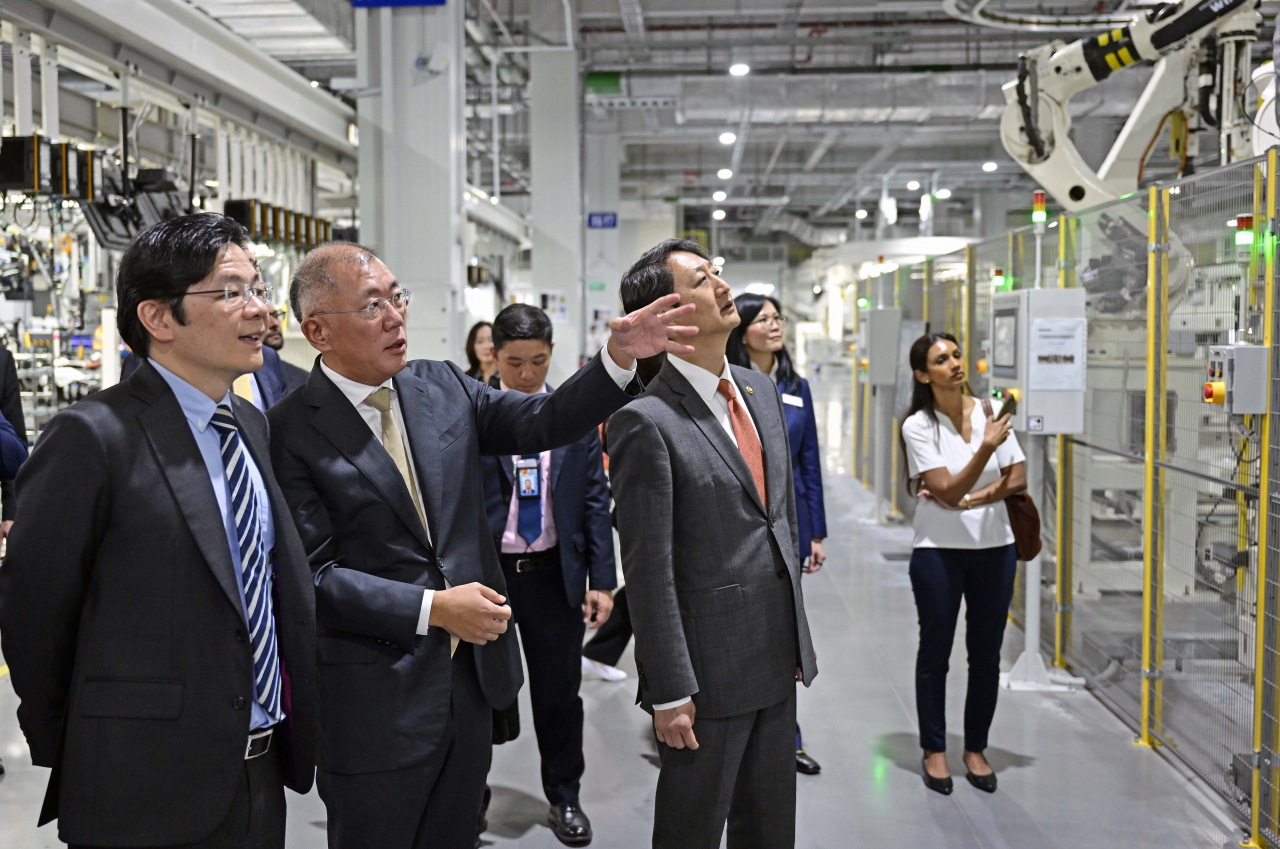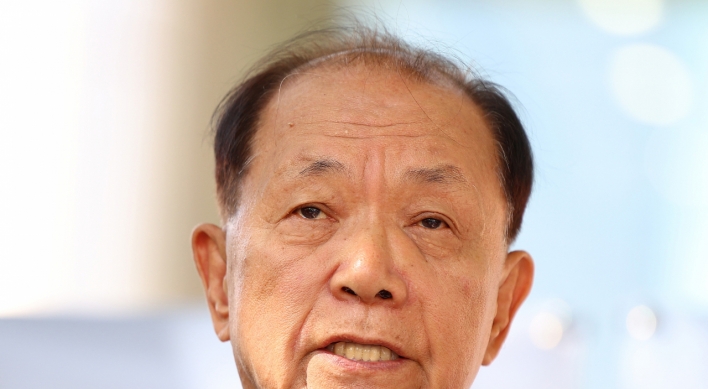[KH Explains] Why Hyundai Motor is pursuing future mobility in Singapore
Singapore is global innovation hub that attracts top talent, testbed for Southeast Asian market
By Kan Hyeong-wooPublished : Nov. 23, 2023 - 15:45

Hyundai Motor Group on Tuesday held a grand opening ceremony for the Hyundai Motor Group Innovation Center Singapore, a non-traditional vehicle manufacturing facility filled with cutting-edge technologies such as artificial intelligence, automation, data analysis and robotics. As for the question of why the South Korean automaker chose Singapore to build the unprecedented site, Hyundai Motor says the answer lies in the fact that it attracts the world's top talent as a global innovation hub.
“Talented people from all over the world as well as Asia gather in Singapore,” Hyundai Motor Group Executive Chair Chung Euisun told reporters after HMGICS’ opening ceremony.
“With such talents, we can get many ideas, such as automating factories and advancing quality through automation. We have a lot to gain and that’s why we chose here. Our goal is to find various technologies that we can spread out to our factories across the globe,” he continued.
The Hyundai Motor chief explained that achieving automation in the vehicle manufacturing sector is crucial as it can enhance quality and the completeness of car assembly, adding that the role of HMGICS is not to earn money but to develop and advance technologies that can manufacture vehicles at other factories in different parts of the world and reduce cost.
Although the exact amount of investment Hyundai Motor put into HMGICS is undisclosed, it is estimated to be over 300 billion won ($230 million). Hyundai AutoEver, the auto conglomerate’s software developing affiliate, announced in October 2020, shortly after HMGICS’ groundbreaking ceremony, that it decided to invest 31.5 billion won in HMGICS to acquire a 10 percent share.
“An innovation hub covers the whole value chain ranging from technology, people and production and, to that end, Singapore excels with its talent pool, (research and development) functions and the government’s push for R&D,” said Chang Jae-hoon, CEO of Hyundai Motor Company.
“The Singapore government is pretty positive (about HMGICS). I believe we will have more cooperation processes moving forward. R&D support is important for us," he said.
In order to attract young engineers and researchers, Hyundai Motor inked a three-way partnership with Nanyang Technological University and the Agency for Science, Technology and Research, or A*STAR, under the Singaporean Ministry of Trade and Industry, to establish the first university-government-business joint research center in the Southeast Asian city-state.
Ranked 26th on the QS World University Rankings 2024, NTU is regarded as one of the best schools in the science and engineering sectors.
“Our biggest strength is the global network we have,” said Cho Nam-joon, a professor of materials science and engineering at NTU, referring to the fact that the school’s staff and students are from 76 countries.
“As NTU is a research-concentrated university, our funding is shifted towards research. What’s more important is that we consider industrial partners as important factors. Our ‘Triple Helix Model’ is the foundation of that.”
The Triple Helix Model refers to the collaboration between the university, government and business -- a partnership model that Hyundai Motor is pursuing. Global companies such as Rolls-Royce, Hewlett-Packard Company -- or HP -- and Continental have set up labs at NTU under tripartite agreements.
“Singapore might be a small market but it is a testbed for the two billion people of the Southeast Asian market,” said Cho.
According to David Law, CEO of A*STAR, the collaboration between Hyundai Motor and the Singaporean government already began in January 2021. Since then, the two sides have worked on various joint projects such as creating virtual images for electric vehicles via a semi-automated method, building digital twin systems and developing advanced robotics.
“For instance, if we develop a solution with Hyundai Motor Group, we can deliver it to local suppliers and small-to-medium enterprises or commercialize it ourselves,” said Law.






![[KH Explains] No more 'Michael' at Kakao Games](http://res.heraldm.com/phpwas/restmb_idxmake.php?idx=644&simg=/content/image/2024/04/28/20240428050183_0.jpg&u=20240428180321)












![[Herald Interview] Mistakes turn into blessings in street performance, director says](http://res.heraldm.com/phpwas/restmb_idxmake.php?idx=652&simg=/content/image/2024/04/28/20240428050150_0.jpg&u=20240428174656)
